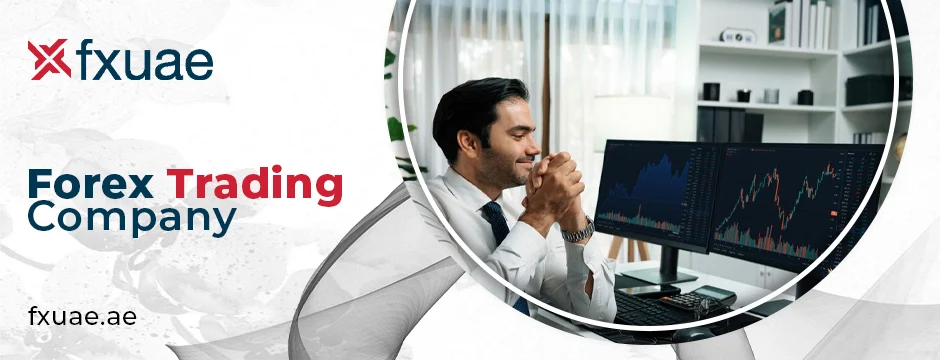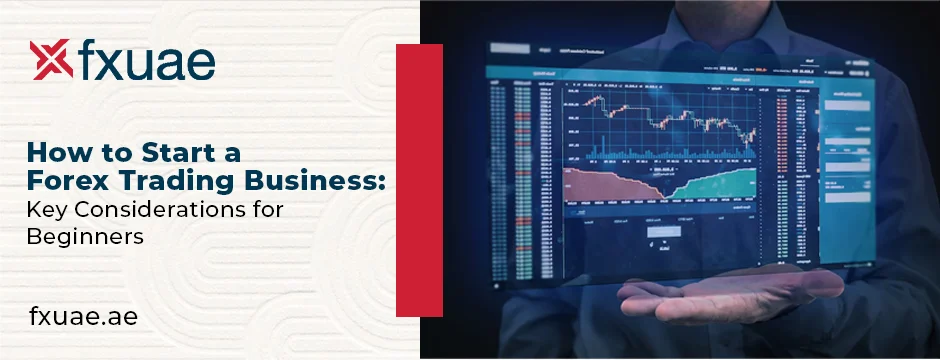How to Start a Forex Trading Business: Key Considerations for Beginners
Forex trading, also known as foreign exchange trading, is one of the largest and most liquid financial markets globally, with a daily trading volume exceeding $7 trillion. Many entrepreneurs and investors see forex trading as an exciting business opportunity offering the potential for high returns. However, starting a forex trading business requires careful planning, in-depth market understanding, and the right resources.
For beginners, the forex market can be complex and volatile, making it essential to gain proper knowledge and develop a solid trading strategy. From understanding market trends and selecting a trading platform to managing risks and complying with regulations, several key factors influence success in forex trading. This guide will walk you through the essential steps to start a Forex Trading Business and highlight the critical considerations that can help you build a profitable venture.
Understanding the Forex Market
Before entering the forex trading business, it’s crucial to understand how the forex market operates. The key players in forex trading include banks, financial institutions, retail traders, and hedge funds.
- Major Pairs (e.g., EUR/USD, GBP/USD, USD/JPY)
- Minor Pairs (e.g., EUR/GBP, AUD/NZD)
Exotic Pairs (e.g., USD/TRY, EUR/ZAR)
Developing a Forex Trading Business Plan
- Business Objectives: Define your financial goals and risk tolerance.
- Market Research: Study currency movements, technical indicators, and trading strategies.
- Trading Capital: Determine how much capital you need to start.
- Risk Management: Outline strategies to minimize potential losses.
- Legal and Regulatory Compliance: Understand the licensing requirements for operating a forex business.
Having a structured plan will help guide your trading decisions and improve your chances of long-term success.
Choosing a Trading Platform and Broker

Selecting the right trading platform and broker to start a Forex Trading Business is crucial to your success in forex trading. Consider the following factors when choosing a broker:
- Regulation: Ensure the broker is licensed by reputable regulatory bodies (e.g., FCA, CySEC, or ASIC).
- Trading Fees: Compare spreads, commissions, and other charges.
- Leverage and Margin Requirements: Understand how much leverage is offered and the associated risks.
- User Experience: Choose a platform with an intuitive interface and advanced trading tools.
Popular trading platforms include MetaTrader 4 (MT4), MetaTrader 5 (MT5), and cTrader, which provide advanced charting tools and automated trading options.
Acquiring Forex Trading Knowledge and Skills
To thrive in forex trading, continuous learning is essential. Beginners should focus on:
- Technical Analysis: Learning about charts, indicators, and trading patterns.
- Fundamental Analysis: Understanding economic reports, interest rates, and market sentiment.
- Trading Strategies: Exploring scalping, day trading, swing trading, and long-term investment approaches.
- Risk Management Techniques: Implementing stop-loss orders, position sizing, and diversification strategies.
Consider taking online courses, reading forex books, and joining trading communities to enhance your skills.
Setting Up a Trading Account
Once you have selected a broker, the next step is setting up a trading account. The process typically involves:
- Registering with a Broker: Providing personal information and verifying identity.
- Depositing Funds: This refers to funding your account based on your trading budget.
- Selecting a Trading Platform: Choosing software that suits your trading style.
- Practicing with a Demo Account: Testing strategies without risking real money.
- Transitioning to a Live Account: Begin real trading with small capital to gain confidence.
Managing Risks and Maximizing Profits
Risk management is a critical component of a successful forex trading company. To minimize losses and protect capital:
- Set Stop-Loss Orders: Prevent excessive losses by exiting trades at predetermined levels.
- Use Proper Position Sizing: Avoid overleveraging and trade within your risk tolerance.
- Diversify Your Portfolio: Trade multiple currency pairs to reduce exposure.
- Keep Emotions in Check: Avoid impulsive decisions and stick to a trading plan.
By implementing risk management techniques, traders can sustain long-term profitability and navigate market fluctuations effectively.

Scaling and Growing Your Forex Trading Business
Once you establish a profitable trading strategy, consider expanding your forex trading business by:
- Increasing Capital Investment: Reinvesting profits to scale up operations.
- Automating Trades: Using trading bots and AI-based strategies to improve efficiency.
- Offering Copy Trading Services: Allowing other traders to follow your trades for a fee.
- Providing Forex Education: Creating online courses or mentorship programs to train aspiring traders.
- Exploring New Markets: Trading exotic currency pairs and emerging market currencies.
Diversifying your approach can help you build a sustainable forex trading business and enhance profitability.
Final Words
Starting a forex trading business requires a combination of market knowledge, strategic planning, and disciplined execution. By understanding the forex market, selecting the right broker, acquiring essential trading skills, and managing risks effectively, beginners can build a successful trading business.
If you are looking to start a forex trading business in Dubai, consider leveraging expert guidance and strategic insights from FXUAE. With professional support, you can navigate regulatory requirements, optimize your trading strategies, and enhance your business growth in the competitive forex market.



